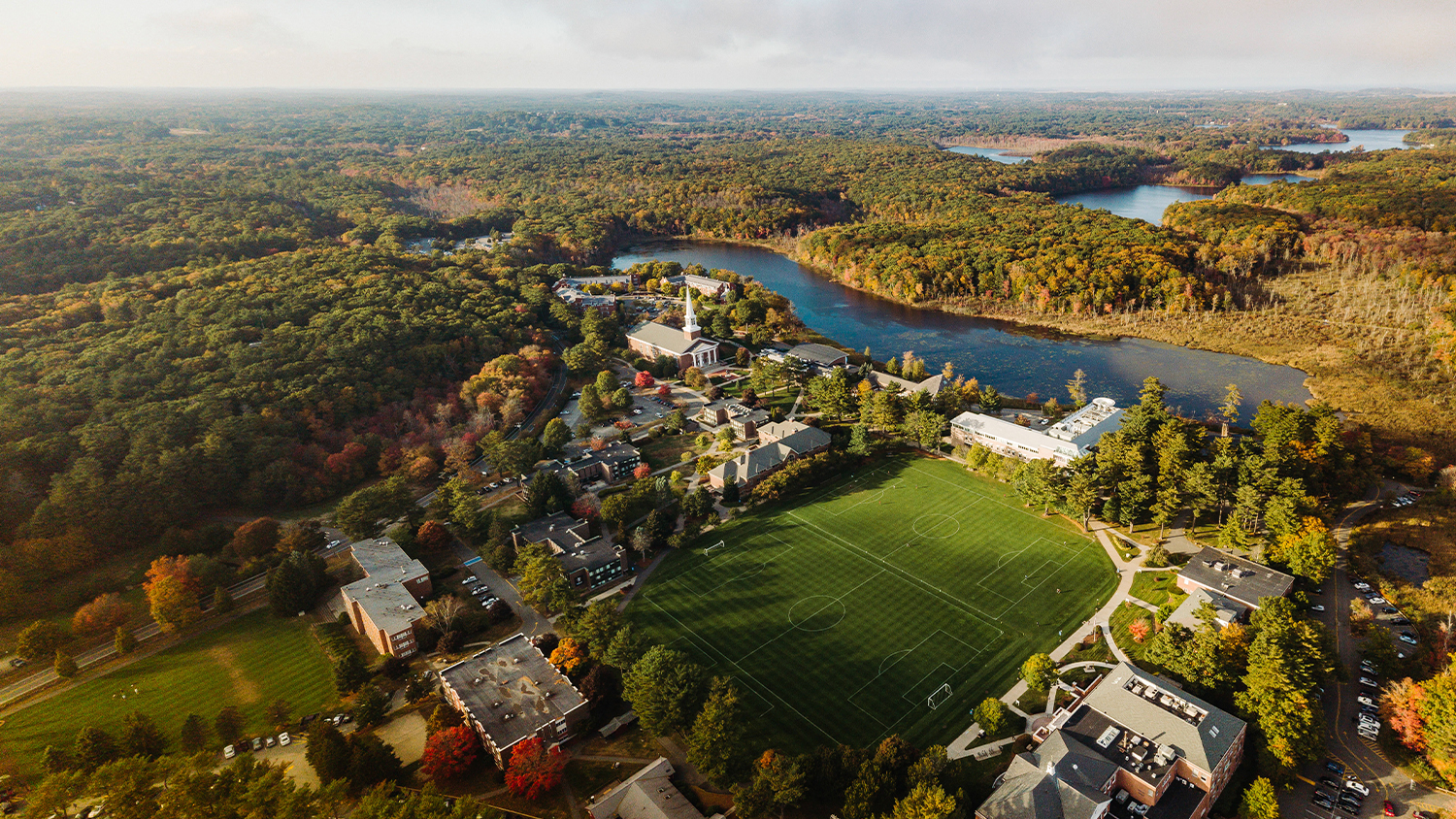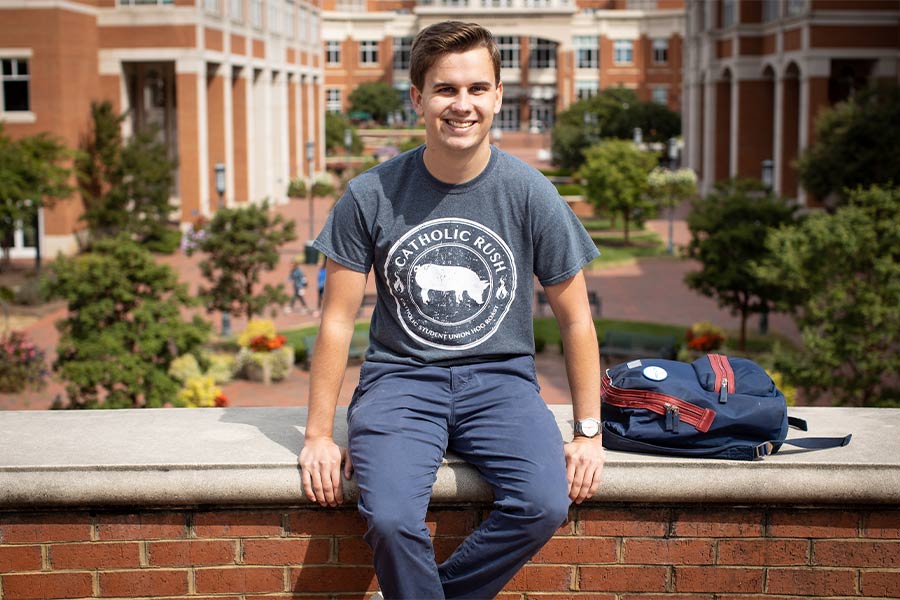
Many students choose Christian colleges because they want to integrate learning with their faith.
And Christian colleges wouldn’t exist if they could not make decisions according with their beliefs—that’s the whole point of their existence.
Under the First Amendment, religious organizations like colleges have a right to keep their faith an integral part of their operations through their employment decisions, without government interference.
The U.S. Supreme Court has made it clear that the government should stay out of religious schools’ hiring practices.
But, apparently, the Supreme Judicial Court of Massachusetts did not get the memo.
And now the mission of one Christian college is in jeopardy.
Let’s take a closer look at this case.
What is Gordon College?
Gordon College is a Christian college in Wenham, Massachusetts. Originally known as Boston Missionary Training School, it “strives to graduate men and women distinguished by intellectual maturity and Christian character.” The college does this by combining a high-quality liberal arts education with religious instruction.
But it’s because of this integration of faith and learning that students choose to attend Gordon College. They want to learn how to apply their Christian faith to their future careers.
At Gordon College, professors are key to helping students make this connection. Professors are expected to teach not only the subject matter in their classes, but also the faith—and how it all relates.
That’s why, to ensure that it is staying true to its beliefs and mission, Gordon College requires students and faculty alike to sign a statement of faith and agree to abide by biblical standards of living.
And the college is open not only about these requirements but also its faith-based mission, as a quick tour of the college’s website confirms.
Gordon College v. DeWeese-Boyd
It’s not unusual for a religious college to expect its professors to share its beliefs.
The mission of these colleges depends on it. And that’s why it’s so important that religious schools like Gordon College are free to make employment decisions based on whether individuals will help carry out that mission in the classroom.
But a court in Massachusetts ruled against Gordon College’s ability to do just that.
In 2016, an associate professor named Margaret DeWeese-Boyd was up for a promotion at Gordon College. Administration officials determined that she had not met the college’s expectations for faculty scholarship and institutional service, and therefore could not offer her the promotion.
DeWeese-Boyd sued the college for its decision not to grant her the promotion. And in 2021, the Supreme Judicial Court of Massachusetts ruled that the Christian college could not make employment decisions based on its core religious mission.
But it is Gordon College that gets to make that call, not a court.
That’s why Alliance Defending Freedom filed a petition with the U.S. Supreme Court, asking it to hear Gordon College’s case.
In February 2022, the Supreme Court denied a hearing to Gordon College’s case at this time, inviting the institution to seek a hearing again at a later stage of litigation.
A concurring opinion signed by four Justices described “the state court’s understanding of religious education” as “troubling.” After cataloguing the Supreme Judicial Court of Massachusetts’ reasoning, the concurring opinion explained that the state court’s “conclusion reflects a troubling and narrow view of religious education” and expressed its “doubts” about the state court’s “application of the ministerial exception.”
Case timeline
- 2017: Because she was not promoted, Professor DeWeese-Boyd filed a lawsuit against Gordon College.
- March 2021: The Supreme Judicial Court of Massachusetts ruled in favor of DeWeese-Boyd. In so doing, the court held that Gordon College’s professors were not essential to its religious mission because not all professors led worship service or student prayer.
- August 2021: Gordon College asked the U.S. Supreme Court to overturn the Massachusetts court’s decision.
- February 2022: The Supreme Court said that Gordon College’s request for Supreme Court review was premature but invited the College to file another petition later in the proceedings.
What’s at stake?
The U.S. Supreme Court has made it clear that the government should stay out of religious schools’ hiring practices when it comes to employees who are called upon to transmit the schools’ faith to students.
In a recent decision in Our Lady of Guadalupe School v. Morrissey-Berru, the Court ruled that “[t]he religious education and formation of students is the very reason for the existence of most private religious schools, and therefore the selection and supervision of the teachers upon whom the schools rely to do this work lie at the core of their mission.”
This same principle should apply to professors at religious colleges like Gordon College.
Religious organizations such as schools and churches have the right to make their own hiring decisions without government interference when it comes to ministerial employees under what is called the ministerial exception.
Gordon College asked the U.S. Supreme Court to uphold the ministerial exception for religious colleges.
On February 28, 2022, the Supreme Court allowed Gordon College’s case to continue for now, with four Justices adding a message to Gordon College that it is free to ask the Supreme Court to hear its case at a later stage of litigation.
Again, the Justices’ statement recognized that the decision of the Supreme Judicial Court of Massachusetts was a “troubling and narrow view of religious education.” That’s true. Because if the Massachusetts court ruling is ultimately permitted to stand, religious colleges will not be permitted to make decisions about who oversees students’ religious education and formation.
And if that happens, religious colleges’ very existence will be threatened.
The bottom line:
The government should not interfere with the faculty hiring decisions of religious colleges.




